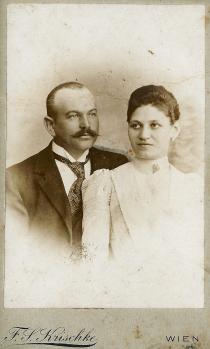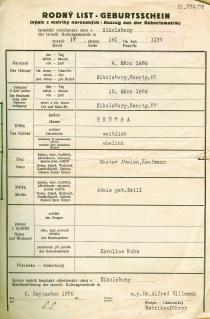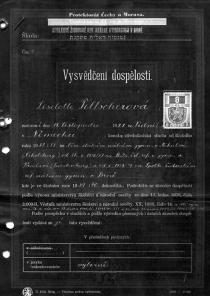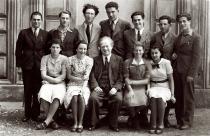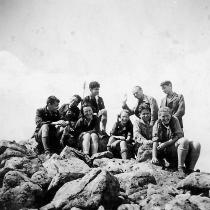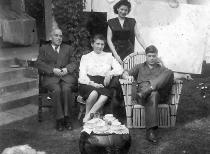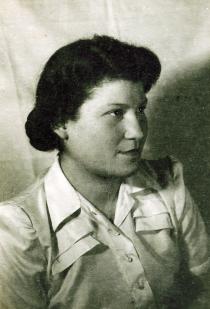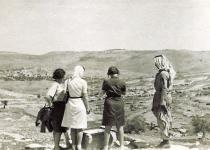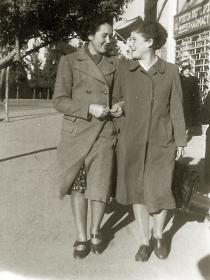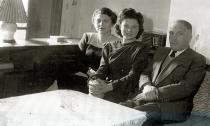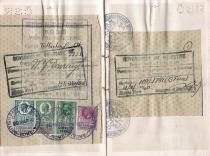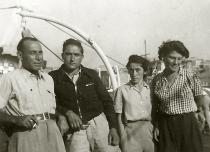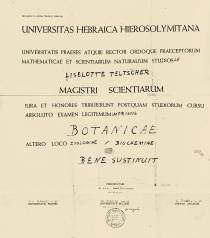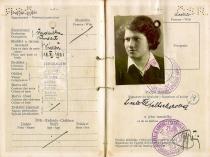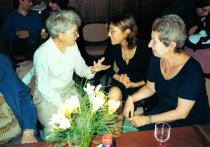This is a picture of me with one of my flatmates - her name was Eva Weidova - in Jerusalem in the 1940s.
In 1940 my father was told to leave the Protectorate [Protectorate of Bohemia and Moravia] within one week. There was only one place in the world where it was possible to go with a J-passport - Shanghai. We took a train to Opatija, Italy and we waited there for the boat to Shanghai. But I was very lucky, because I got a student certificate there to study in Palestine, so I went to study biology in Jerusalem.
My studies in Palestine were an interesting experience. I got the certificate and everyone with the certificate got a scholarship for two years. It wasn't much but it helped. There were many Czechs with the certificate. Some of them were married, had left their wives at home and wanted to get them over to Palestine as well, so they renounced the scholarship and bought the certificate for them. I know that it worked in one or two cases. But still we had to work. I had to pay for the room I rented and I had to eat something. We were doing the cleaning at Jerusalem University, but there were too many applicants, so everyone only got the job for three months. I also cleaned in houses. At first I thought I could teach languages or something like that, but there were too many educated people. There were many doctors, who were selling eggs instead of working in their profession.
I always rented a room with someone else because it was cheaper that way. I found Eva Weidova through an advertisement and we lived together for some time. She came from Slovakia. She was very kind. She was rather domestic, she cooked very well. She also came to Jerusalem to study, but then she found a boyfriend and probably got married. I don't know, what happened to her later.
I became a member of the Communist Party in Palestine. The party was illegal, so it was impossible to tell anyone, 'I'm a member, come and join us'. They just talked with you about social things etc. but they couldn't say they were in the Party because it was dangerous; you could have gone to prison or even be expelled. It was no fun. They were always telling me, 'Talk quietly, why are you shouting?' I answered, 'I come from a democratic country, everyone can say what he thinks there, I'm going to say whatever I want and as loud as I want!' I didn't realize the danger.
At first there was one party for both, Jews and Arabs. But we didn't meet the Arabs at all. Maybe the leaders met them but normal members didn't. Then there were some problems, because it was found that one of the leaders was an English confidant? Then the Arab party was separated from the Jewish one. I don't know much about it, I wasn't very active. I was only active among students - we were teaching illiterate children but didn't have any political ambitions. We taught the children every day in the afternoon, because they usually worked in the morning. So they came after work, we gave them something to eat - some bread and tea we got from the organization - and taught them something. It probably wasn't teaching on the highest level. We were only students, and everyone taught something about his subject at university. We taught them some basic things, such as how to read and write, and I told them about nature, which I liked.

